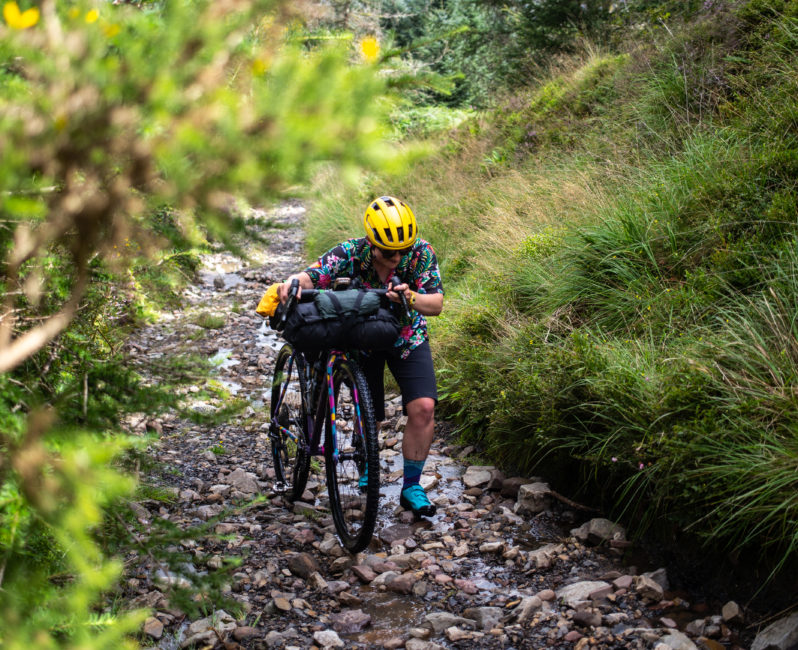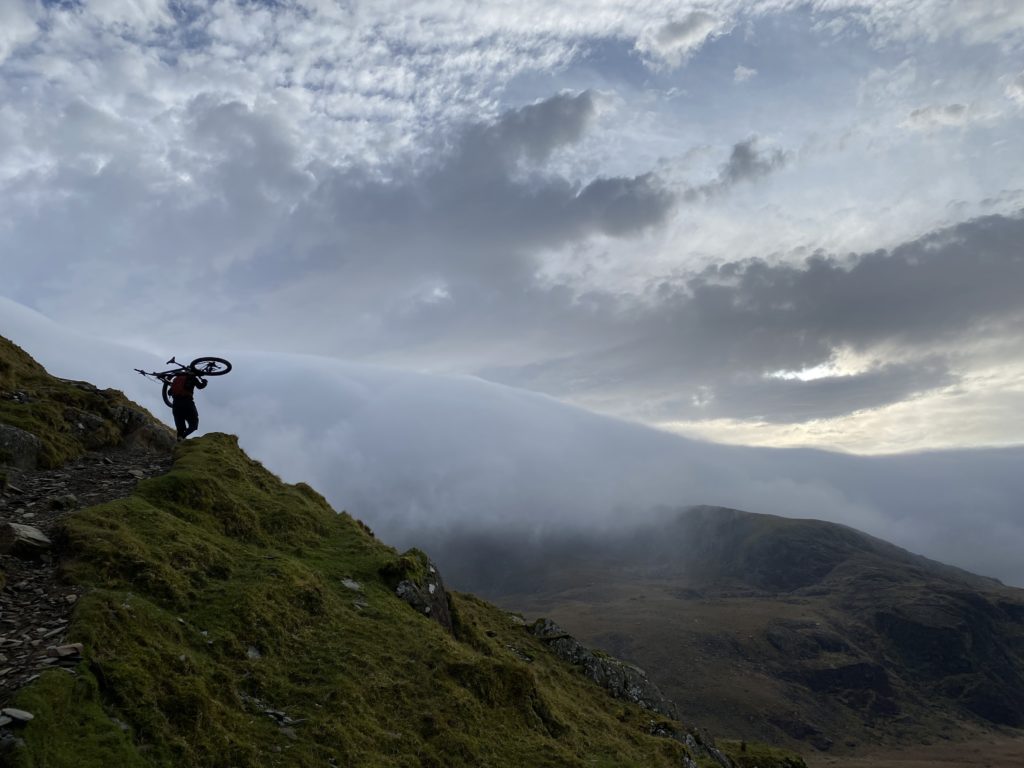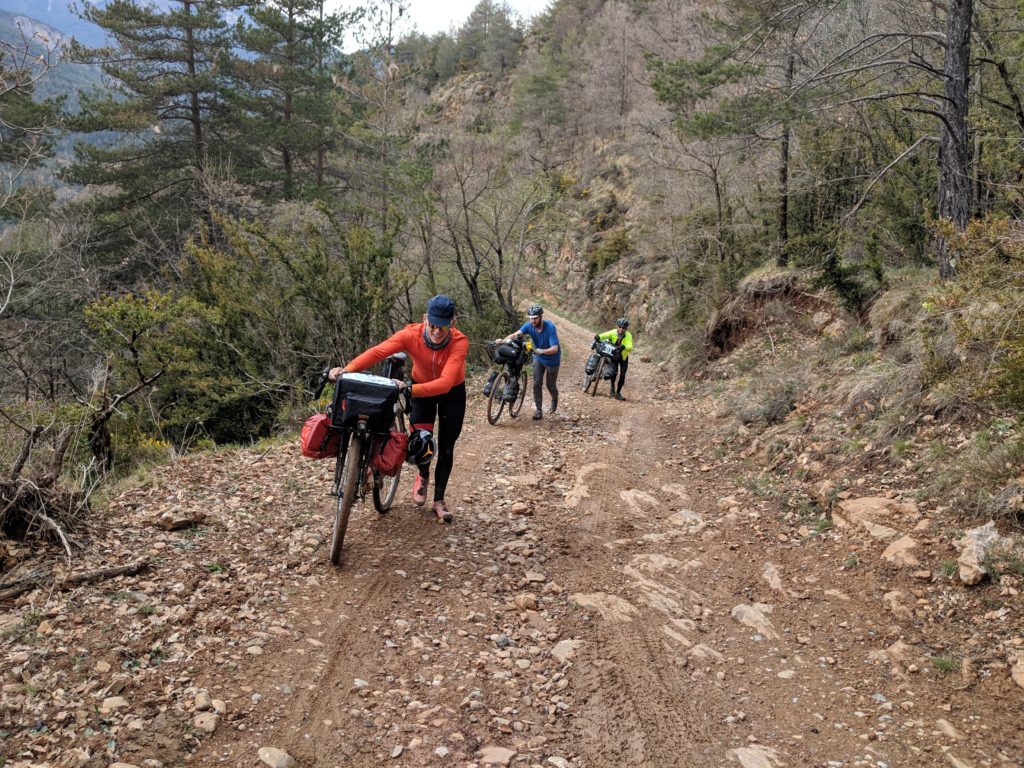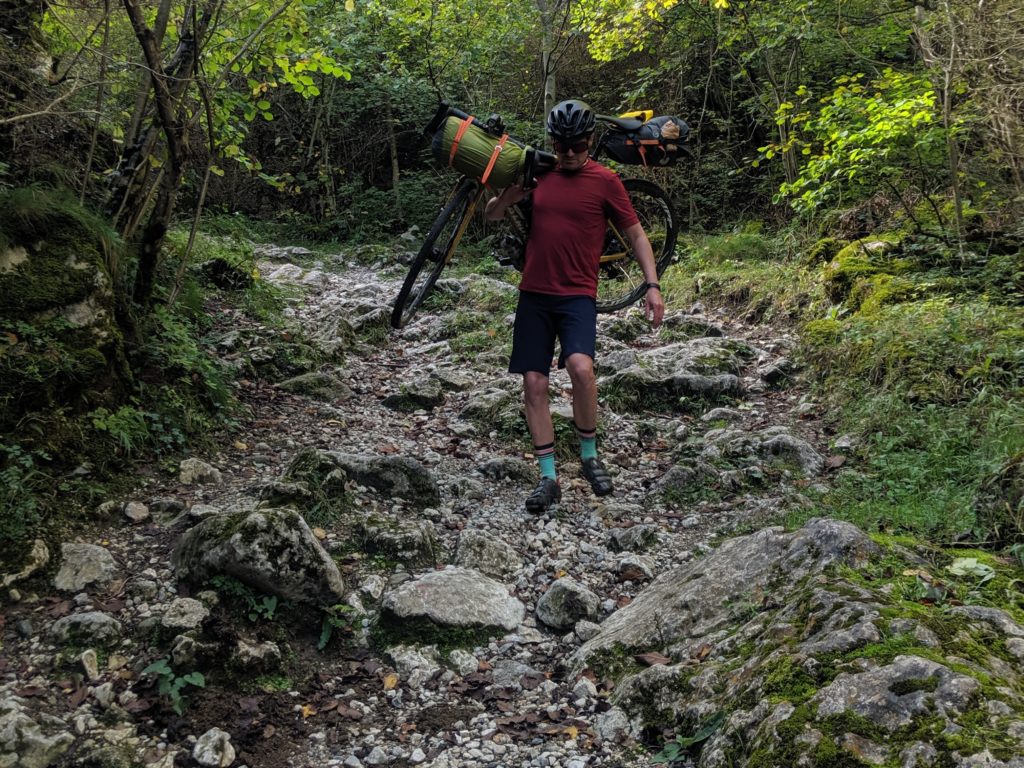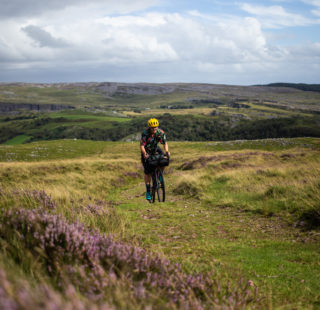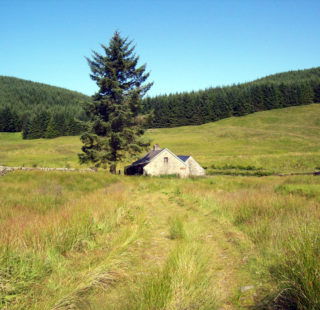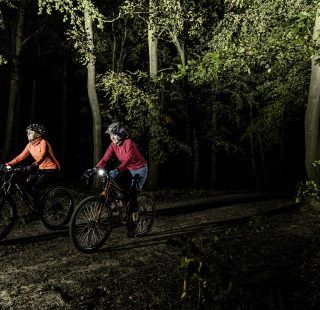Starting out very much as a road cyclist before my glorious off-road conversion three years ago, I can regrettably still remember those first few months. The rapid progress curve, trying new things like clip-in pedals, learning about bonking the hard way and facing my worst enemy: hills. We’d head to the mighty hills of Rutland to practice. Friends cheering me on to keep pedalling up the (what then felt like very steep) hills. Every now and then I’d have a sense of humour failure as I ungracefully dismounted and skittered up the rest of the hill on my ice-skates (SPD-SL cleats), head hung in shame.
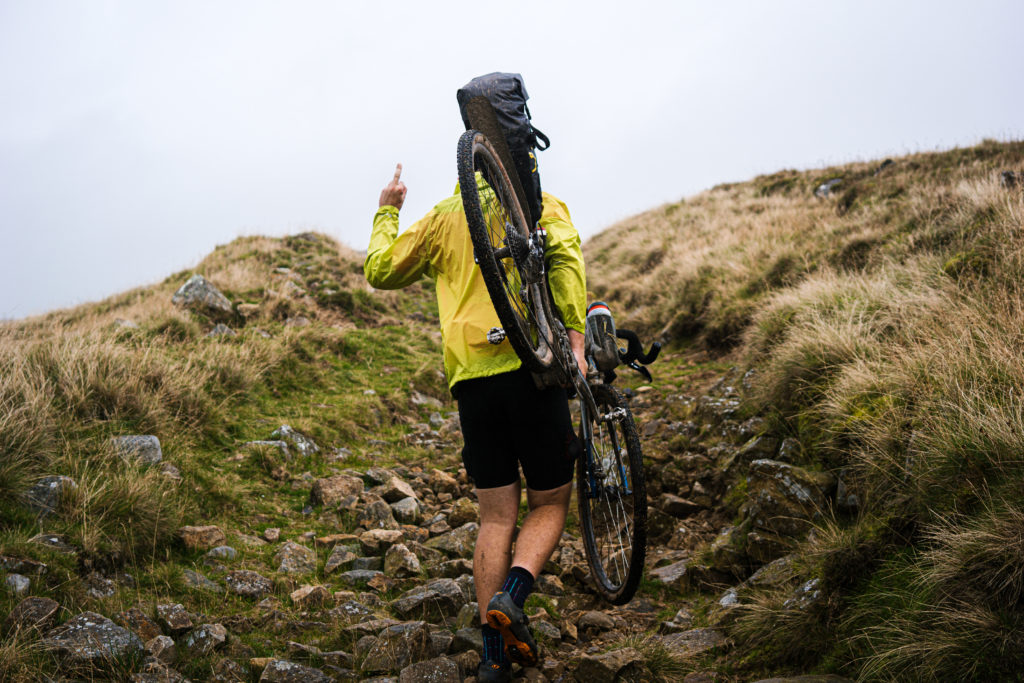
Some might enjoy hike-a-bike more than others. Photo: Forthehellofit.cc
Mountain biking, it appeared, was a totally different ball game altogether. Most riders I’ve met don’t use clip-in pedals at all, and sessioning tricky parts of the trail often means a quick and pain-free push-up. Dipping my toes into cyclo-cross made dismounting actually pretty fun, although I always preferred a kind of ‘be more Sven’ approach to riding, even when it was much slower than running.
A change of perspective
So what about the sort of in between that’s roughly characterised as gravel or adventure cycling then? See here, walking with your bike takes on a whole different meaning, not of failure, but of exploration.
Hike-a-bike is nothing new. One of the most wonderful photo collections has been born out of the archives of the Rough Stuff Fellowship, the world’s oldest off-road touring club dating back to 1955. Men and women of all ages are pictured on their travels all over the world from local jollies across the Peak District to Switzerland and even Everest, more often than not pushing their incredibly narrow-tyred and heavily laden bikes along, dressed up in their wollens, bobbly hats, and if you were lucky, the latest hi-tech plastic poncho. In fact, they were so accustomed to pushing their bikes, that on long stints they’d remove their pedals to avoid any shin or ankle smashing. If you know, you know; these guys and gals were ahead of their time.
‘I never go for a walk without my bike’ – early Rough Stuff Fellowship member
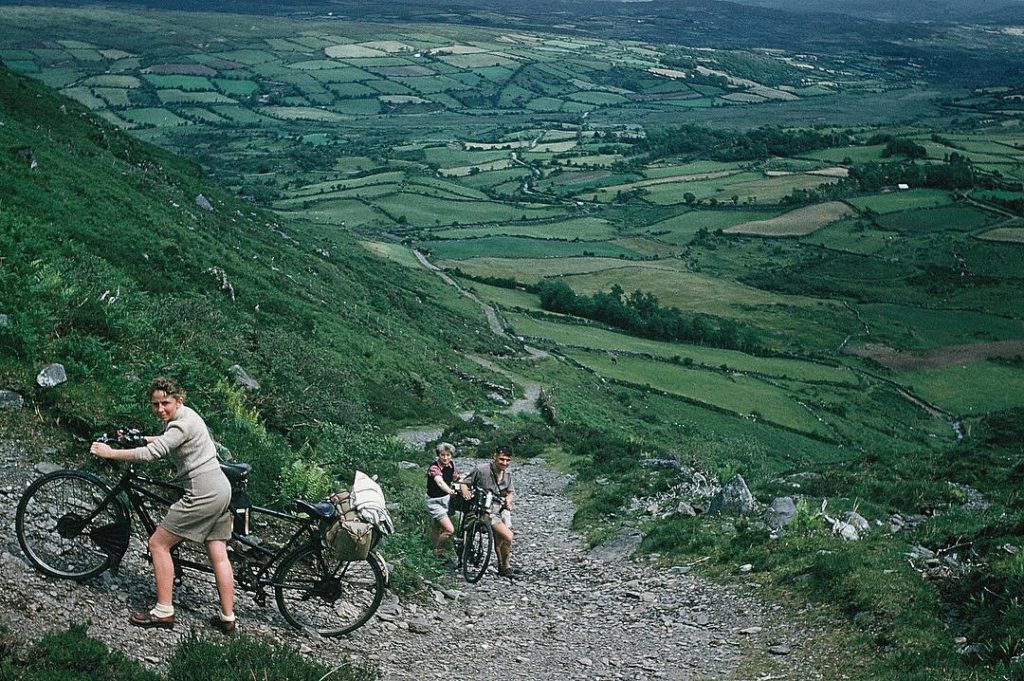
Mary, Gerry & Elsie in Southern Ireland, 1955. Copyright and included with the kind permission of the Rough Stuff Fellowship (RSF). Check out the book here and membership options here.
For many modern adventure cyclists, bikepackers or whatever label you want to use, hike-a-bike is accepted as part of the fun. Nothing to feel ashamed about or frustrated, but a necessary evil to open up some incredible new trails, to reach the highest peak or to scale the steepest slopes. While for some the idea of walking with your bike offers little pleasure at all, for others it’s a great delight; a chance to slow down and see things in a slightly different way.
Some pointers for maiden hike-a-bikers
Sure, of course you can point and shoot when it comes to walking with your bike, but here’s a few tips to make it all the more pleasurable for you. There’s no right or wrong way to do it either, more what works for you in any given situation
Shoes
The demands for shoes that are comfortable to walk in versus those that are best for cycling can be quite different. For ultimate ease, you’ll need to choose a shoe with a recessed MTB style cleat (SPD type), a sole that has some degree of flexibility, at least in the toe box to allow your foot to bend as you walk (stiffer really isn’t always better), and a grippy sole for any uneven, rocky or slippy surfaces that you’re scrambling over.
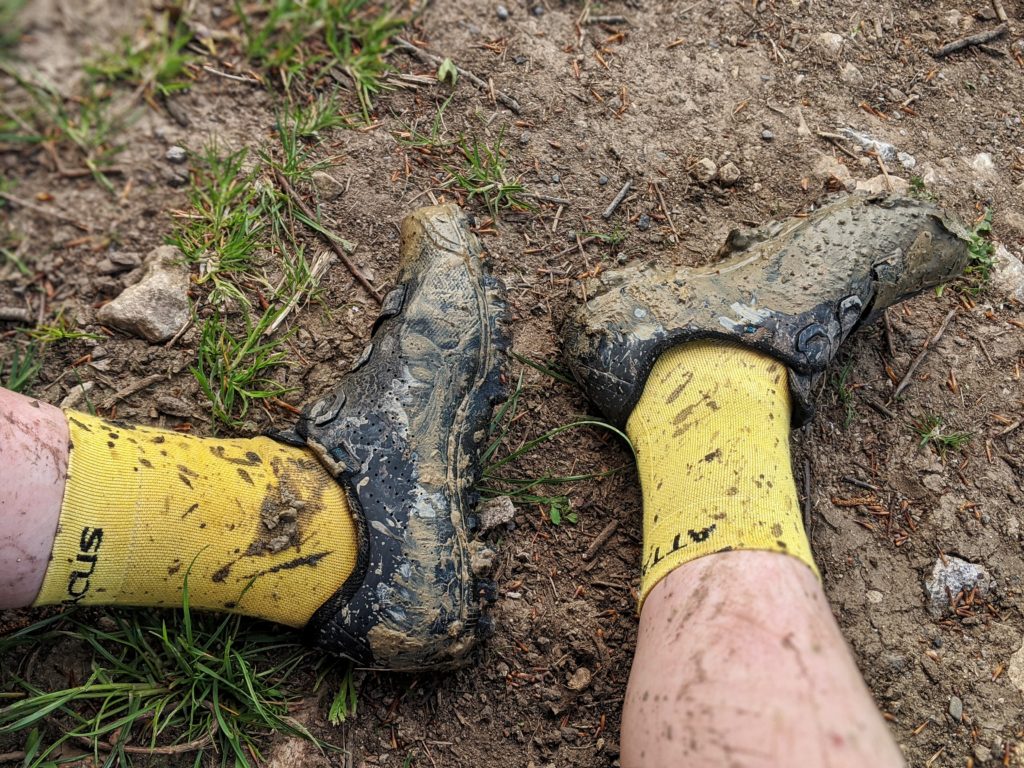
Grip, comfort and flexibility should be top priorities when looking for shoes to tackle walking tough sections.
I’m not trying to advocate that you go out and buy another pair of cycling shoes specifically for rides where you think you might need to walk a bit. But it’s something to bear in mind when choosing your next pair of off-road shoes. Check out my recent review of the Specialized Recon 3.0 shoes for a pair that I reckon have it dialled.
If you’re seeking large stretches of hike-a-bike or rough terrain, there’s absolutely nothing stopping you from fitting flat pedals. You can then choose to use hiking boots or shoes with a bit more ankle support. If it’s good enough for Lael Wilcox, it’s good enough for me!
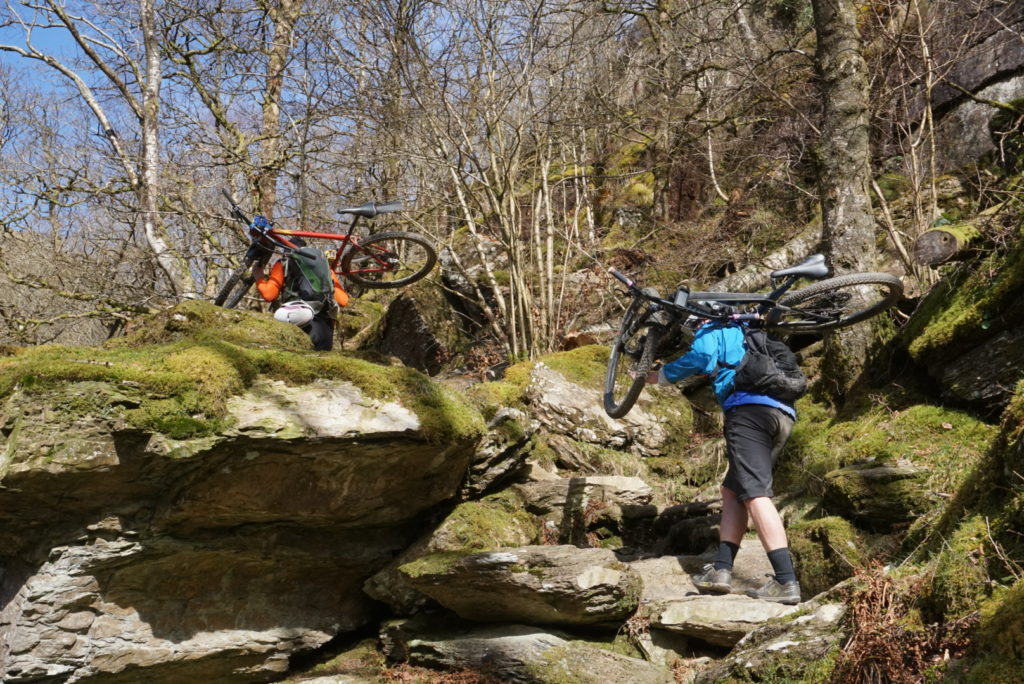
Hike-a-bike can lead to some brilliant gems just off the trail, like this path to Twm Sion Cati’s Cave.
Carrying technique
You’ve got a couple of options here, and your best bet is to play around to see what you feel most comfortable with. For short stretches or heavily laden bikes, you might want to simply push your bike alongside you. However when it comes to more substantial stretches and tricky terrain, carrying your bike can give you better maneuverability.
First up is the classic cyclo-cross shoulder mount through the main triangle. This might be pretty tricky if you’ve got a sloping top tube of course. But with larger frames you should have enough space even with bottles fitted to the bike. You can wrap your arm either under the downtube and hold the bars to steady the front end or just the bars. Best bet is to check out some cyclo-cross specific videos for the best techniques here.
Alternatively there’s a position that you’ll more likely see mountain bikers adopt; with the bike braced over their shoulders, often holding onto their forks and crank. Remember you can make this easier for yourself when you go pick the bike up by placing it on higher ground. Such as on a bank or rock, so that you have less far to lift it.
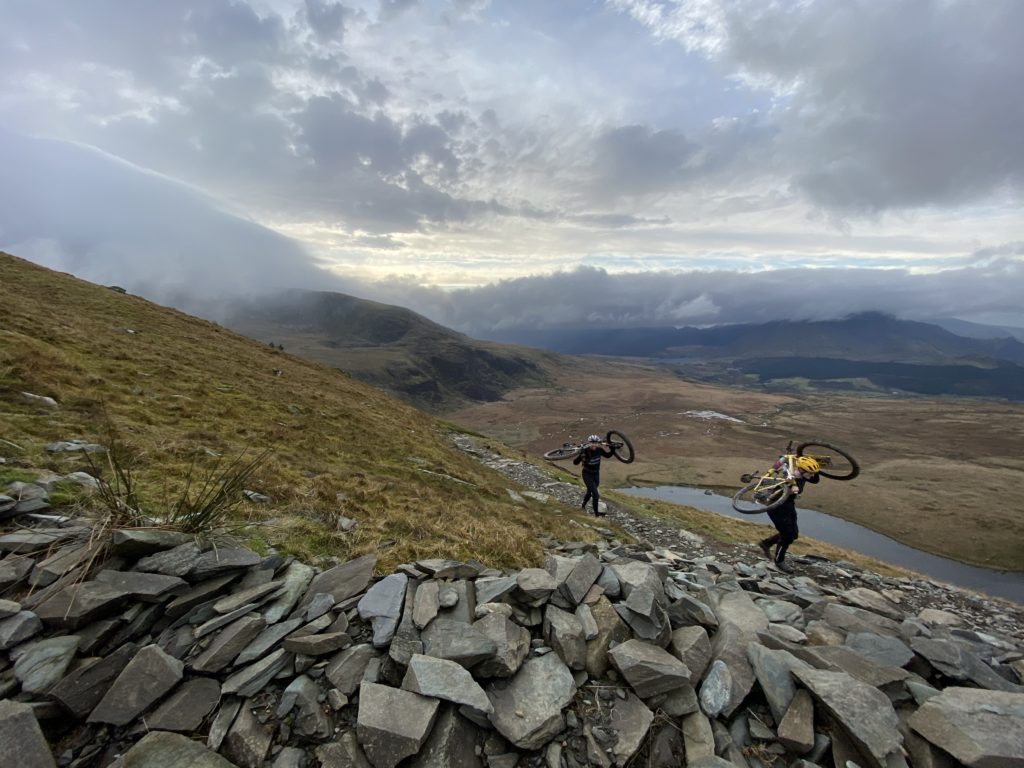
For more serious hike-a-bike sections like this ascent of Snowdon, over the shoulders can work well. Photo: Beth Hodge
Padding and comfort
You can use a couple of different bags to make these positions more comfortable for you, and ease the impact on your shoulder or back. If you run a top-tube bag, prioritise storage for softer items like an extra layer where your shoulder sits in a ‘cross style mount. Or use a mountain bike style backpack to help support the bike over your back in the second position.
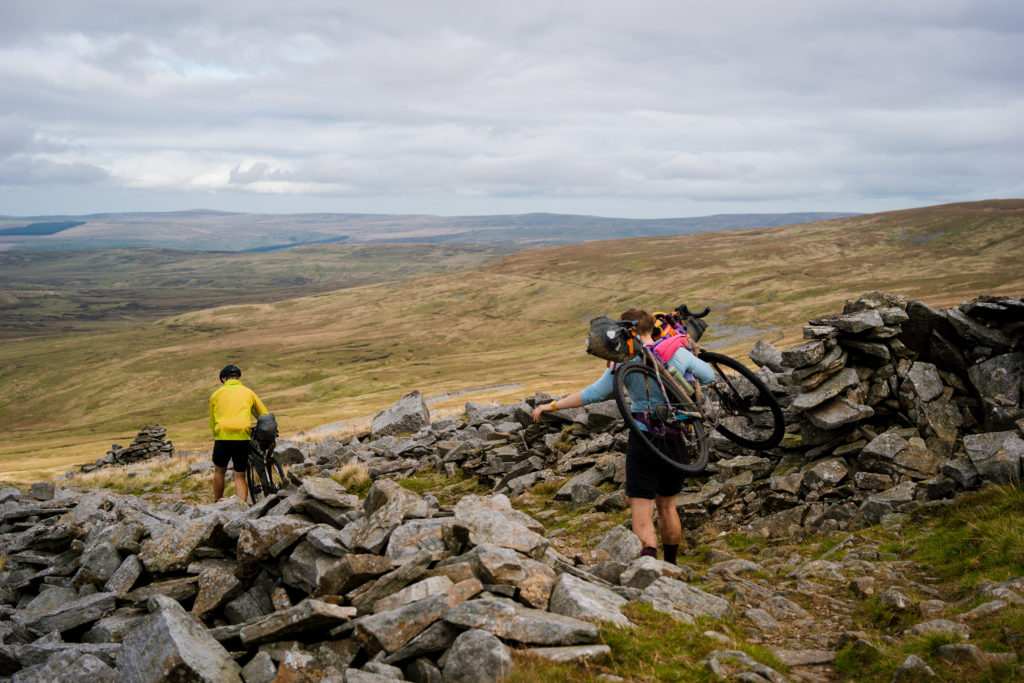
Soft items in a top tube bag can make for ace shoulder cushioning. Photo: Forthehellofit.cc
Over to you
If you fancy having a crack at some more adventurous routes, check out the ‘Hike-a-bike is alright’ Collection on Komoot by adventure cyclist Tom Hill. You’ll need a mountain bike for these though!
Let us know about your favourite, most rewarding or even most arduous hike-a-bike adventures in the comments below.
Last modified: 16th September 2020
